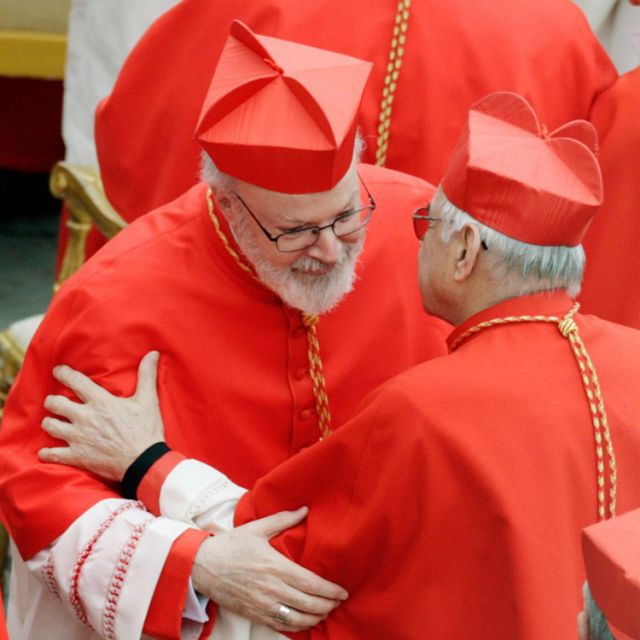The following summary of the role of a cardinal is from the Latin Code of Canon Law, 1983.
o The cardinals of the Holy Roman Church constitute a special College, whose prerogative it is to elect the Roman pontiff in accordance with the norms of a special law. The cardinals are also available to the Roman pontiff, either acting collegially, when they are summoned together to deal with questions of major importance, or acting individually, that is, in the offices which they hold in assisting the Roman pontiff especially in the daily care of the universal Church.
o The College of Cardinals is divided into three orders: 1. the episcopal order, to which belong those cardinals to whom the pontiff assigns the title of a suburbicarian church (episcopal sees near Rome), and eastern-rite patriarchs who are made members of the College of Cardinals; 2. the presbyteral order; and 3. the diaconal order.
o Cardinal priests and cardinal deacons are each assigned a title or a deaconry in Rome by the pontiff.
o Eastern patriarchs within the College of Cardinals have their patriarchal see as a title.
o The Cardinal dean has the title of the diocese of Ostia, together with that of any other church to which he already has a title.
o Those to be promoted cardinals are men freely selected by the pontiff, who are at least in the order of the priesthood and are truly outstanding for doctrine, virtue, piety and prudence in practical matters; those who are not already bishops must receive episcopal consecration.
o Cardinals are created by a decree of the pontiff, which in fact is published in the presence of the College of Cardinals. From the moment of publication, they are bound by the obligations and they enjoy these rights defined in the law.
o A person promoted to the dignity of cardinal, whose creation the pontiff announces, but whose name he reserves in pectore (in confidence), is not at that time bound by the obligations nor does he enjoy the rights of a cardinal. When his name is published (made public) by the pontiff, however, he is bound by these obligations and enjoys these rights, but his right of precedence dates from the day of the reservation in pectore.
o The dean presides over the College of Cardinals. When he is unable to do so, the sub-dean takes his place. The dean, or the sub-dean, has no power of governance over the other cardinals, but is considered as first among equals.
o When the office of dean is vacant, those cardinals who have a suburbicarian title, and only those, under the presidency of the sub-dean if he is present, or of the oldest member, elect one of their number to act as dean of the college. They are to submit his name to the pontiff for approval.
o Cardinals assist the Supreme Pastor of the Church in collegial fashion particularly in consistories, in which they are gathered by order of the pontiff and under his presidency. Consistories are either ordinary or extraordinary.
o In an ordinary consistory all cardinals, or at least those who are in Rome, are summoned for consultation on certain grave matters of more frequent occurrence, or for the performance of especially solemn acts.
o All cardinals are summoned to an extraordinary consistory, which takes place when the special needs of the Church and more serious matters suggest it.
o Only an ordinary consistory in which certain solemnities are celebrated can be public, that is when, in addition to the cardinals, prelates, representatives of civil states and other invited persons are admitted.
o Cardinals who head the departments and other permanent sections of the Roman Curia and of Vatican City, who have completed their 75th year, are requested to offer their resignation from office to the pontiff, who will consider all the circumstances and make provision accordingly.
o It belongs to the cardinal dean to ordain the elected pontiff a bishop, if he is not already ordained. If the dean is prevented from doing so, the same right belongs to the sub-dean or, if he is prevented, to the senior cardinal of the episcopal order.
o The senior cardinal deacon announces the name of the newly elected Supreme Pontiff to the people. Acting in place of the pontiff, he also confers the pallium on metropolitan bishops or gives the pallium to their proxies.
o Cardinals have the obligation of co-operating closely with the pontiff. For this reason, cardinals who have any office in the curia and are not diocesan bishops are obliged to reside in Rome. Cardinals who are in charge of a diocese as diocesan bishops are to come to Rome whenever summoned by the pontiff.
o When a cardinal has taken possession of a suburbicarian church or of a titular church in Rome, he is to further the good of the diocese or church by counsel and patronage. However, he has no power of governance over it, and he should not for any reason interfere in matters concerning the administration of its good, or its discipline, or the service of the church.
o A cardinal may be deputed by the pontiff to represent him in some solemn celebration or assembly of persons as a Legatus a latere, that is, as his alter ego; or he may, as a special emissary, be entrusted with a particular pastoral task. A cardinal thus nominated is entitled to deal only with those affairs which have been entrusted to him by the pontiff himself.
o When the Apostolic See is vacant, the College of Cardinals has only that power in the Church which is granted to it by special law.
(Source: Holy See Press Office)



